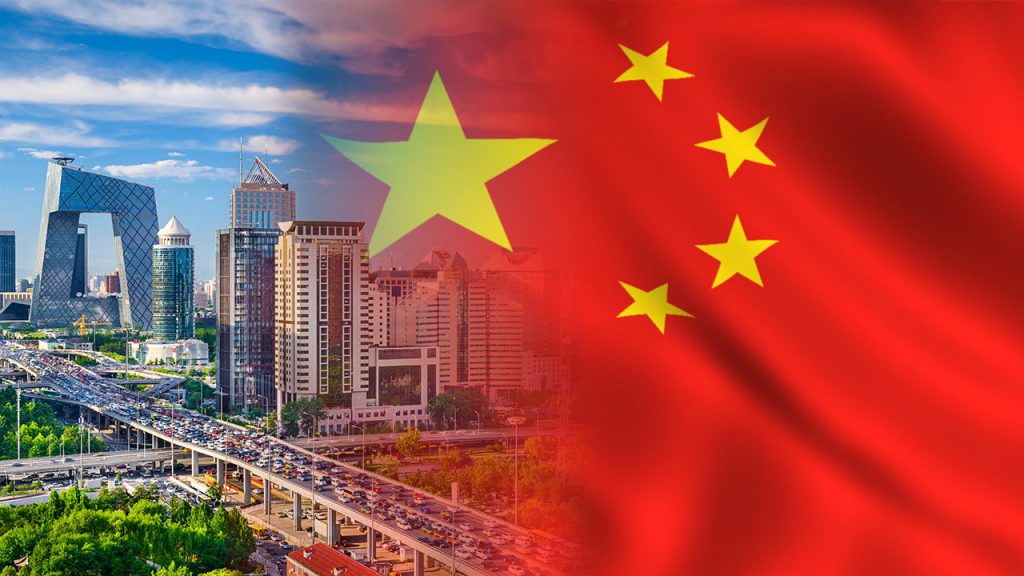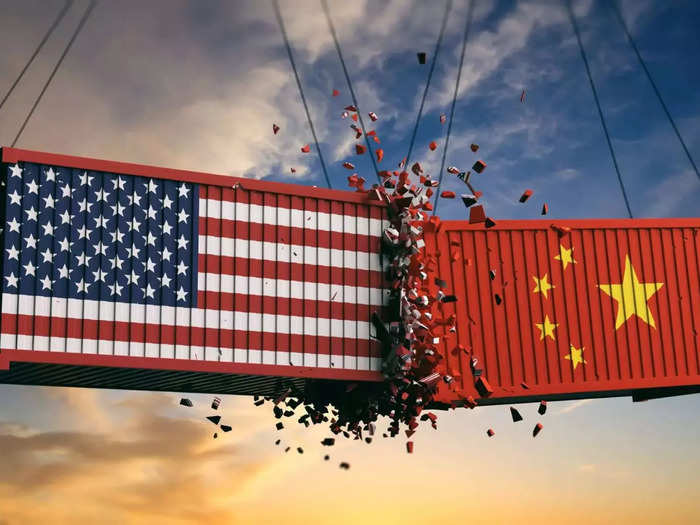The global supply chain battle between the United States and China has escalated beyond traditional tariff wars, and both nations are now restricting access to critical materials. This shift transforms the US-China trade war into a fight over semiconductor export controls and also rare earth minerals supply. The trade tensions impact threatens manufacturing processes worldwide as the global supply chain battle enters a new and more dangerous phase right now.
Also Read: Trump Doubles Tariffs to 50% on Steel and Aluminum Imports
Global Supply Chain Battle Drives US-China Trade War Challenges


China Controls Rare Earth Minerals Supply Chain
China dominates the rare earth minerals supply, mining an estimated 70 percent of the world’s rare earths and also processing around 90 percent globally. Beijing has weaponized this control through an licensing system that monitors and approves sales worldwide, directly impacting the global supply chain battle.
The trade tensions impact became evident when Ford Motor temporarily closed a Chicago factory after suppliers ran out of essential magnets needed for car production. Defense contractors are also facing similar shutdowns as the US-China trade war restricts access to critical materials needed for advanced manufacturing operations.
Liza Tobin, former White House national security adviser and managing director at Garnaut Global, stated:
“The supply chain wars that we’ve been speculating about for years are now happening.”
Semiconductor Export Controls Escalate Global Supply Chain Battle
The US has introduced semiconductor export controls, causing American companies to stop shipments of airplane technology and semiconductors to China. These actions add to a global effort started in 2022 to restrict China’s use of modern computing and AI.
Alibaba, Tencent and Baidu may soon join the entity list, preventing Alibaba, Tencent and Baidu from doing business with the US. When American technology is involved, companies from around the world suffer due to the rising battles in the global supply chain.
Jamieson Greer, the United States Trade Representative, said:
“The Chinese were slow-rolling their compliance and American officials haven’t seen the flow of some of those critical minerals like they’re supposed to be doing.”
Geneva Agreement Fails Amid Trade Tensions Impact
In May 2025, negotiators met in Geneva attempting to resolve the global supply chain battle through diplomatic means. China agreed to suspend countermeasures, but US officials report that rare earth minerals supply has not returned to previous levels, worsening the trade tensions impact across multiple industries.
The semiconductor export controls remain a contentious issue as both sides continue to accuse each other of violating agreements. The US-China trade war continues despite diplomatic efforts to restore normal supply chain operations and reduce tensions.
Trump posted on Truth Social:
“China had TOTALLY VIOLATED ITS AGREEMENT WITH US. So much for being Mr. NICE GUY!”
Lin Jian, spokesman for the Chinese Ministry of Foreign Affairs, stated:
“China had earnestly implemented the consensus reached in Geneva.”
Also Read: Trump Calls Xi ‘Tough to Deal With’ Amid US-China Trade Strain
Long-Term Implications of the Global Supply Chain Battle
The ongoing US-China trade war reveals deep economic integration, with hundreds of billions in trade flowing between both nations annually. Developing an alternative rare earth minerals supply requires massive investment, as US mine development averages around 29 years according to S&P statistics.
Officials from the Department of Defense and also the National Security Council are accelerating efforts to find domestic supplies, but the trade tensions impact will persist for years. The global supply chain battle affects industries from automotive to defense, with semiconductor export controls creating widespread uncertainty right now.
Daniel H. Rosen, co-founder of Rhodium Group, said:
“The United States horribly underestimated the demand for rare earths.”
Paul Triolo, partner at Albright Stonebridge Group, stated:
“This problem is deep and long lasting. It will not go away, or be easily solved.”
The global supply chain battle has fundamentally changed the US-China trade war, making semiconductor export controls and also rare earth minerals supply primary weapons in this conflict. This trade tensions impact will continue reshaping global manufacturing as both nations work to reduce dependencies despite significant economic integration challenges.





